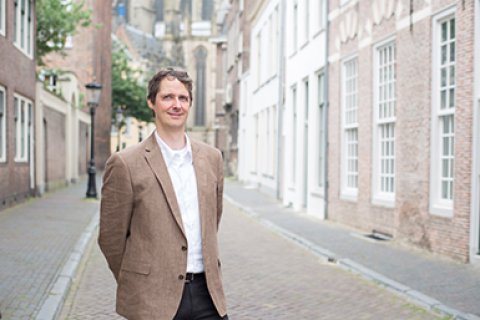Without a good model, no research runs smooth

A number of new Professors have recently been appointed to the Faculty of Social and Behavioural Sciences (FSW). Who are they, and what will they be doing here? Professor by Special Appointment Marcel van Assen is a mathematical sociologist who would love a chance to unleash his expertise on the design of board games.
Last year Prof. Marcel van Assen was appointed professor by special appointment in the Sociology Section, where he contributes to its line of research on Cooperation in Social and Economic Relations. He also holds a post at Tilburg University's Methodology and Statistics Department. On 8 September 2016 he will be delivering his inaugural lecture in Utrecht.
What does your research concern?
'In Tilburg I am one of a group of scientists involved in 'meta-research'. We are interested in questions such as 'How is research carried out?' and 'How are research questions answered?' Research practices prove to be far from ideal. A case in point is that research and reported findings tend to focus on statistically significant results. This leads to a skewed presentation of the studied phenomenon in the literature. Our meta-research group also examines how, specifically, research could be organised better. My own work centres principally on replication research, meta-analysis and publication bias.
Here in Utrecht my focus is more on mathematical sociology. That is not a field of study as such, but a way of looking at or studying sociological problems. It involves creating a model of the sociological problem that is formal, or mathematical, in approach. One advantage of this type of modelling is that it makes explicit the assumptions and mental steps underlying an analysis. At the same time, however, every model has its drawbacks. Without a good model – mathematical or otherwise – the course of no research ever runs smooth. I will be delving into this topic in my inaugural lecture in September, on The importance of good models in the social sciences.'
Why did you become a Professor?
'You can achieve more when you are higher up the ladder, and that is great when you think that something could be done better. I also enjoy directing the work of research groups, which I also have a feeling I am very good at.'
Which of your research projects had the greatest social impact?
'One study I was involved in reproduced 100 psychological experiments done in 2008 and revealed that, on average, the effects found in the original studies were a great deal weaker or even totally non-existent in the replication studies. But what does that imply in general, and for those 100 studies in particular? That is a very tough question, and the answers could have far-reaching consequences. Science published an article on this, as, subsequently, did various papers.'
What would you do if you were not a professor?
'Oh, there are plenty of other options! It would be interesting to design and test board games, and in the process to analyse which are the best strategies and how you ensure balanced play. I am also a huge sports fan. It could be fun to write about sports and work as a sports statistician.'
Who do you admire?
'Not necessarily special people, but special qualities in them. I admire people who are not afraid to call a spade a spade, though not with the intention of offending others. What I do not admire is when people like politicians just say what others want to hear. I am also in awe of athletes who train 40 hours a week with hardly any income to speak of, driven purely by their inner motivation.'

